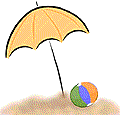
Summer is here and in full swing...I'm sure most of you are spending tons of time by the pool or at the beach to stay cool. Take a few minutes out of your busy day and give the sisters you Visit Teach a call, maybe invite them to take a dip in the pool with you and get some Visiting Teaching done all at the same time!
Here is the Visiting Teaching Message for June, I hope you enjoy it.
STRENGTHENING FAMILIES THROUGH TEMPORAL SELF-RELIANCE
Study this material and, as appropriate, discuss it with the sisters you visit. Use the questions to help you strengthen your sisters and to make Relief Society an active part of your own life.
Developing self-reliance—the ability to care for ourselves and our families—is the responsibility of every sister. We become self-reliant as we learn to love work, as we seek inspiration to find the best ways to provide for ourselves, and as we work with family members to meet basic needs.
When we are self-reliant, we use our blessings and resources to prepare for and avoid problems. Self-reliance, however, is enhanced as we pray for the courage to meet with faith the challenges that will surely come. Self-reliance also enables us to keep our covenant to care for others.
In Relief Society, we are taught self-reliance principles and skills. Sisters can learn about budgeting, debt relief, employment qualifications, the scriptures and the gospel, teaching others to read and learn, technology, physical health, fitness, addiction prevention and recovery, social and emotional health, preventing illness, gardening, food production and storage, emergency preparedness, and many other things that will help us become self-reliant. 1
Julie B. Beck, Relief Society general president, explains that “providing for ourselves and others is evidence that we are disciples of the Lord Jesus Christ. … When [my mother-in-law] passed away suddenly last year, she left evidence of her self-reliant life. She had a current temple recommend and well-used scriptures and gospel study manuals. We lovingly divided up the pots, pans, and dishes with which she had prepared thousands of meals. She left us quilts she had made from old clothing. She believed in the old adage ‘Use it up, wear it out, make it do, or do without.’ We saw the supply of food she had grown, preserved, and stored. Particularly touching were her little account books in which she faithfully recorded her expenditures over many years. Because she lived providently, she left some money she had saved for emergencies, and she left no debts! Most importantly, she had taught and inspired many others with the skills she had acquired during her faithful life.” 2
From the Scriptures
From Our History
Relief Society sisters have always participated in the work of saving souls temporally and spiritually. Each week as the Female Relief Society of Nauvoo met, sisters reported on people in need. Donations of money, goods, talents, and time were dispersed to relieve the needy. This foundational work of relieving suffering has continued to be the work of Relief Society through the generations.
When the Saints arrived in the Salt Lake Valley, President Brigham Young (1801–77) counseled sisters to assist those in need and to learn skills that would allow them to take care of themselves. He said, “Learn to sustain yourselves; lay up grain and flour, and save it against a day of scarcity.” 3 Under the direction of the priesthood, Relief Society continues to teach self-reliance, to safeguard the family, and to encourage personal righteousness and acts of charity, the pure love of Christ.
What Can I Do?
1. How can I help my sisters and their families improve in temporal self-reliance?
2. How can I improve my own temporal self-reliance?For more information, go to www.reliefsociety.lds.org .







